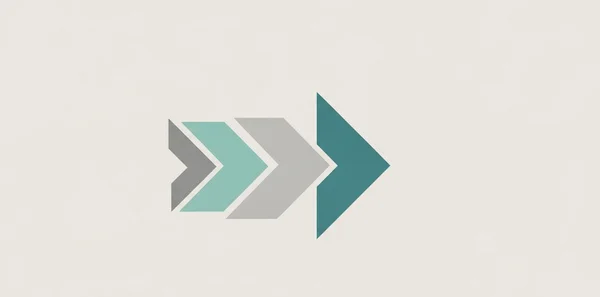ได้คะแนนสูงจากการทดสอบออทิสติก? ขั้นตอนต่อไปที่ควรทำ
July 6, 2025 | By Seraphina Rivers
การได้รับคะแนนสูงในการทดสอบออทิสติกอาจทำให้รู้สึกถึงอารมณ์ที่ซับซ้อนหลากหลาย อาจเป็นความรู้สึกได้รับการยอมรับ ควบคู่ไปกับความสับสน หรือแม้แต่ความวิตกกังวล คุณอาจกำลังถามตัวเองว่า ผลลัพธ์นี้หมายความว่าอย่างไรกับตัวฉันหรือคนที่ฉันรัก นี่เป็นช่วงเวลาสำคัญ แต่สิ่งสำคัญคือต้องจำไว้ว่ามันเป็นจุดเริ่มต้น ไม่ใช่จุดหมายปลายทาง คู่มือนี้มีไว้เพื่อช่วยให้คุณจัดการกับขั้นตอนต่อไปได้อย่างสงบและมีเหตุผล ขั้นตอนแรกคือการทำความเข้าใจเครื่องมือที่คุณเพิ่งใช้ เช่น การทดสอบออทิสติกออนไลน์ ที่ครอบคลุม
ทำความเข้าใจคะแนนสูงของคุณจากการทดสอบออทิสติก
ก่อนอื่น ชี้แจงให้ชัดเจนว่าคะแนนสูงในการทดสอบคัดกรองออนไลน์มีความหมายอย่างไร มันเป็นสัญญาณ ไม่ใช่ป้ายกำกับ

สิ่งที่คะแนนสูงบ่งชี้ (และสิ่งที่ไม่ใช่)
คะแนนสูงบ่งชี้ว่าคุณแสดง ลักษณะออทิสติก หลายอย่างที่มักพบในผู้ที่มีภาวะออทิสติกสเปกตรัม (ASD) เปรียบเสมือนการคัดกรองเบื้องต้นที่ระบุรูปแบบบางอย่างในความชอบทางสังคม รูปแบบการสื่อสาร ประสบการณ์ทางประสาทสัมผัส และกิจวัตรของคุณ
อย่างไรก็ตาม สิ่งสำคัญคือต้องเข้าใจว่ามัน ไม่ได้ หมายถึงอะไร:
- ไม่ใช่ การวินิจฉัยทางการแพทย์
- ไม่ได้ สะท้อนภาพรวมทั้งหมดของจุดแข็งและความท้าทายที่เป็นเอกลักษณ์ของคุณ
- ไม่ได้ กำหนดว่าคุณเป็นใคร
หลายคนที่ไม่ได้เป็นออทิสติกอาจได้คะแนนสูงเนื่องจากภาวะอื่น ๆ หรือลักษณะบุคลิกภาพ นี่คือเหตุผลที่ขั้นตอนต่อไปมีความสำคัญอย่างยิ่ง
สำรวจลักษณะออทิสติกในสเปกตรัม เทียบกับตัวเลขธรรมดา
สเปกตรัม ออทิสติกนั้นมีความหลากหลายอย่างมาก ตัวเลขเดียวไม่สามารถแสดงถึงความซับซ้อนของลักษณะทางระบบประสาทของแต่ละบุคคลได้อย่างเต็มที่ มันเป็นตัวบ่งชี้ที่มีประโยชน์ แต่ความเข้าใจที่แท้จริงมาจากการพิจารณารูปแบบเฉพาะของลักษณะเฉพาะ นี่คือที่ที่รายงานโดยละเอียดสามารถมีประโยชน์อย่างยิ่ง โดยเจาะลึกไปถึง เหตุผล ที่คุณตอบคำถามในลักษณะนั้น นี่คือที่ที่ การวิเคราะห์ด้วย AI ที่ละเอียดสามารถให้ข้อมูลเชิงลึกที่ลึกซึ้งกว่าคะแนนโดยทั่วไปได้
เหตุใดเครื่องมือคัดกรองจึงไม่ใช่การวินิจฉัยอย่างมืออาชีพ
การทำความเข้าใจความแตกต่างระหว่างการคัดกรองและการวินิจฉัยอาจเป็นหัวใจสำคัญของการเดินทางนี้ ความชัดเจนนี้ช่วยให้คุณก้าวไปในเส้นทางที่ถูกต้อง
ความแตกต่างที่สำคัญระหว่างการคัดกรองและการวินิจฉัย
การประเมินตนเอง ออนไลน์ เช่นที่คุณทำ เป็นเครื่องมือ คัดกรอง มีวัตถุประสงค์เพื่อระบุบุคคลที่อาจได้รับประโยชน์จากการประเมินโดยผู้เชี่ยวชาญที่ละเอียดและครอบคลุมกว่า
ในทางกลับกัน การวินิจฉัย เป็นกระบวนการทางคลินิกที่ดำเนินการโดย ผู้เชี่ยวชาญด้านสุขภาพที่มีคุณสมบัติ (เช่น นักจิตวิทยา จิตแพทย์ หรือนักประสาทจิตวิทยา) กระบวนการนี้มีความละเอียดกว่ามาก และเป็นวิธีเดียวที่ถูกต้องและยอมรับได้ในการระบุว่าบุคคลนั้นเป็นออทิสติกหรือไม่
บทบาทและข้อจำกัดของการประเมินตนเองออนไลน์ใดๆ
แม้แต่การทดสอบออนไลน์ที่มีพื้นฐานทางวิทยาศาสตร์มากที่สุดก็ถูกออกแบบมาให้เข้าถึงได้ง่ายและเป็นตัวบ่งชี้อย่างรวดเร็ว พวกเขาไม่สามารถ:
- แยกแยะภาวะอื่น ๆ ที่อาจมีลักษณะทับซ้อนกัน (เช่น ADHD ความวิตกกังวลทางสังคม หรือ C-PTSD)
- ประเมินความสำคัญทางคลินิกของลักษณะของคุณ (เช่น วิธีที่ลักษณะเหล่านี้ส่งผลกระทบต่อชีวิตประจำวันของคุณ)
- ให้การรับรองทางกฎหมายหรือทางการแพทย์ที่จำเป็นสำหรับการอำนวยความสะดวกในที่ทำงานหรือบริการสนับสนุน
เพื่อการทำความเข้าใจที่เหมาะสมและแม่นยำ คุณต้องดำเนินการเพื่อ การประเมินออทิสติกอย่างมืออาชีพ
แผนปฏิบัติการทีละขั้นตอนหลังจากทำการทดสอบ
ดังนั้น ควรทำอย่างไรหลังจากได้คะแนนจากการทดสอบออทิสติก ที่ทำให้คุณเกิดคำถาม นี่คือแผนปฏิบัติการสี่ขั้นตอนเพื่อเป็นแนวทางให้คุณ

ขั้นตอนที่ 1: หยุด หายใจ และทบทวน (อย่าตกใจ)
ก่อนที่จะรีบดำเนินการใดๆ ให้ใช้เวลาสักครู่เพื่อ ทบทวนตนเอง ความรู้สึกของคุณนั้นถูกต้อง ให้เวลาตัวเองในการทำความเข้าใจข้อมูล จำไว้ว่าข้อมูลเชิงลึกใหม่นี้เป็นเครื่องมือสำหรับการทำความเข้าใจ ไม่ใช่เหตุผลสำหรับความกลัว
ขั้นตอนที่ 2: บันทึกลักษณะและประสบการณ์เฉพาะของคุณ
ก้าวข้ามคะแนนไป รวบรวมตัวอย่างที่เป็นรูปธรรมจากชีวิตของคุณที่เกี่ยวข้องกับคำถามที่คุณตอบ ตัวอย่างเช่น:
- "ฉันพบว่าการพูดคุยเล็กๆ น้อยๆ นั้นทำให้เหนื่อยล้าและชอบการสนทนาที่ลึกซึ้ง"
- "แสงจ้าและเสียงดังในซูเปอร์มาร์เก็ตมักจะรู้สึกหนักอึ้ง"
- "ฉันมีความสนใจที่ลึกซึ้งและกระตือรือร้นสองสามอย่างที่ฉันสามารถพูดถึงได้เป็นชั่วโมง"
คุณสามารถใช้ผลลัพธ์จาก การทดสอบคัดกรองออนไลน์ ของคุณเป็นกรอบในการบันทึกนี้ได้

ขั้นตอนที่ 3: ค้นหาและหาผู้เชี่ยวชาญที่มีคุณสมบัติ
เริ่มมองหาผู้เชี่ยวชาญที่มีประสบการณ์ในการวินิจฉัยออทิสติกในผู้ใหญ่หรือเด็ก ขึ้นอยู่กับสถานการณ์ของคุณ เมื่อ มองหาและเลือกผู้เชี่ยวชาญ ให้มองหาคุณวุฒิ เช่น Ph.D., Psy.D. หรือ M.D. นอกจากนี้ ควรดูรีวิวหรือขอคำแนะนำเพื่อหาคนที่เหมาะสม โดยเฉพาะอย่างยิ่งผู้ที่รู้จักในฐานะผู้ส่งเสริมความหลากหลายทางระบบประสาท
ขั้นตอนที่ 4: เชื่อมต่อกับชุมชนที่มีความหลากหลายทางระบบประสาทเพื่อขอการสนับสนุน
คุณไม่ได้อยู่คนเดียว มี ชุมชนที่มีความหลากหลายทางระบบประสาท ออนไลน์ที่กว้างขวางและสนับสนุน การเชื่อมต่อกับผู้อื่นที่ผ่านกระบวนการนี้มาแล้วสามารถให้การสนับสนุนทางอารมณ์ที่มีค่า คำแนะนำในทางปฏิบัติ และความรู้สึกเป็นส่วนหนึ่ง การได้ยินจากผู้อื่นสามารถทำให้การเดินทางรู้สึกโดดเดี่ยวน้อยลง

วิธีการเตรียมตัวสำหรับการประเมินออทิสติกอย่างมืออาชีพ
เมื่อคุณตัดสินใจที่จะขอการประเมินอย่างเป็นทางการ การเตรียมตัวให้พร้อมสามารถทำให้ กระบวนการวินิจฉัยออทิสติก ราบรื่นและมีประสิทธิภาพมากขึ้น
รวบรวมข้อมูลที่เกี่ยวข้อง (รวมถึงผลการทดสอบความถนัดของคุณ)
รวบรวมเอกสารทั้งหมดที่คุณได้เตรียมไว้ ซึ่งควรรวมถึง:
- บันทึกส่วนตัวของคุณเกี่ยวกับลักษณะและประสบการณ์ของคุณ
- การประเมินผลการเรียนหรือผลการปฏิบัติงานที่เกี่ยวข้อง
- สำเนาผลการคัดกรองของคุณ การนำสำเนาผล การทดสอบออทิสติก ของคุณมาด้วยสามารถเป็นจุดเริ่มต้นที่ดีในการสนทนากับผู้เชี่ยวชาญ
สิ่งที่คาดหวังระหว่างกระบวนการประเมินอย่างเป็นทางการ
การประเมินที่ครอบคลุม นั้นมีหลายแง่มุม กระบวนการประเมิน มักจะเกี่ยวข้องกับ:
- การสัมภาษณ์อย่างละเอียด: พูดคุยเกี่ยวกับประวัติพัฒนาการ สังคม และการแพทย์ของคุณ
- การทดสอบมาตรฐาน: ใช้เครื่องมือต่างๆ เช่น ADOS-2 (Autism Diagnostic Observation Schedule)
- แบบสอบถาม: กรอกแบบฟอร์มโดยละเอียด บางครั้งอาจมีข้อมูลจากสมาชิกในครอบครัว
คำถามสำคัญที่ควรถามผู้เชี่ยวชาญด้านการวินิจฉัย
เพื่อให้แน่ใจว่าคุณอยู่ในมือที่ดี ให้พิจารณาถามผู้เชี่ยวชาญว่า:
- "คุณมีประสบการณ์ในการวินิจฉัยออทิสติกอย่างไร โดยเฉพาะในผู้ใหญ่/ผู้หญิง/กลุ่มอายุของฉัน?"
- "กระบวนการประเมินของคุณเกี่ยวข้องกับอะไรบ้าง?"
- "คุณมองออทิสติกจากมุมมองที่ส่งเสริมความหลากหลายทางระบบประสาทหรือไม่?"
โอบรับการเดินทางแห่งการค้นพบตนเองของคุณ
การได้รับคะแนนสูงในการทดสอบออทิสติกไม่ใช่จุดสิ้นสุด แต่เป็นการเริ่มต้นของการเดินทางที่อาจเปลี่ยนแปลงชีวิตในการทำความเข้าใจและยอมรับตนเอง คะแนนนี้เป็นกุญแจที่ไขประตูบานใหม่ สิ่งที่อยู่เบื้องหลังนั้นไม่ควรถือเป็นสิ่งที่น่ากลัว แต่เป็นหนทางใหม่ในการทำความเข้าใจจิตใจของคุณเองและนำทางโลกรอบตัวด้วยความเห็นอกเห็นใจตนเองมากขึ้น
ความรู้นี้ช่วยให้คุณสามารถแสวงหาการสนับสนุนที่เหมาะสม สื่อสารความต้องการของคุณ และเชื่อมต่อกับชุมชนที่เข้าใจคุณอย่างแท้จริง
หากคุณพร้อมที่จะเริ่มต้นการเดินทางเพื่อทำความเข้าใจ หรือต้องการสำรวจข้อมูลเชิงลึกที่ขับเคลื่อนด้วย AI ของเรา ก้าวแรกด้วยการทดสอบออทิสติกที่เชื่อถือได้ของเรา วันนี้
คำถามที่พบบ่อย
การทดสอบออทิสติกออนไลน์มีความแม่นยำเพียงใด
การทดสอบออทิสติกออนไลน์มีความแม่นยำสูง ในฐานะเครื่องมือคัดกรอง มีประสิทธิภาพในการระบุบุคคลที่มีแนวโน้มจะมีลักษณะออทิสติก อย่างไรก็ตาม การทดสอบเหล่านี้ไม่สามารถใช้ทดแทนการวินิจฉัยอย่างเป็นทางการจากผู้เชี่ยวชาญที่มีคุณสมบัติได้ ซึ่งเป็นวิธีเดียวที่จะยืนยันว่าคุณเป็นออทิสติกหรือไม่ และแยกแยะภาวะอื่นๆ ได้
โดยทั่วไปแล้ว การวินิจฉัยออทิสติกอย่างมืออาชีพมีค่าใช้จ่ายเท่าใด
ค่าใช้จ่ายสำหรับ การประเมินออทิสติกอย่างมืออาชีพ นั้นแตกต่างกันไปอย่างมาก ขึ้นอยู่กับสถานที่ตั้งของคุณ คุณสมบัติของผู้ให้บริการ และความคุ้มครองประกันของคุณ ราคาอาจตั้งแต่หลายร้อยถึงหลายพันดอลลาร์ เราขอแนะนำให้ติดต่อคลินิกในพื้นที่และผู้ให้บริการประกันของคุณโดยตรงเพื่อขอข้อมูลที่ถูกต้อง
ฉันสามารถวินิจฉัยออทิสติกด้วยตนเองตามคะแนนสูงจากการทดสอบได้หรือไม่
แม้ว่าการวินิจฉัยตนเองจะเป็นส่วนหนึ่งของกระบวนการค้นพบตนเองที่เป็นส่วนสำคัญสำหรับหลายๆ คนในชุมชนออทิสติก แต่ก็ไม่ได้รับการยอมรับทางการแพทย์หรือตามกฎหมาย การวินิจฉัยอย่างเป็นทางการเป็นสิ่งจำเป็นสำหรับการเข้าถึงการอำนวยความสะดวกในที่ทำงาน การสนับสนุนด้านการบำบัด และบริการอื่นๆ การใช้เครื่องมือออนไลน์เช่น การทดสอบออทิสติกออนไลน์ฟรี ของเราเป็นขั้นตอนแรกที่รับผิดชอบในการแสวงหาความชัดเจนจากผู้เชี่ยวชาณ